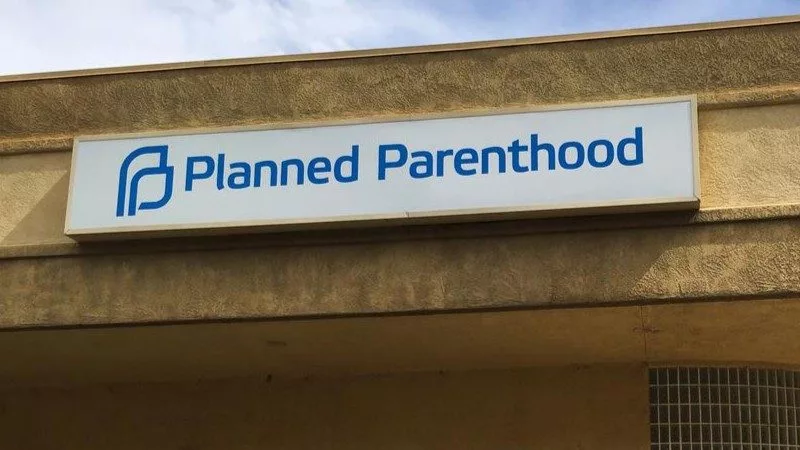MERIDIAN, ID – By one early afternoon in late August, Dr. Colleen McNicholas had already inserted an IUD, seen a patient to provide gender-affirming care and helped a patient access HIV prevention medication.
At the last Planned Parenthood in Idaho, located just outside Boise, she said the clinic handles “really anything that somebody needs for their sexual and reproductive health care, basically from puberty through menopause.”
After the Idaho Legislature’s near-total abortion ban took effect three years ago, the state has lost more than a third of its OB-GYN doctors — and new recruits aren’t making up for the losses, a peer-reviewed study recently found. Planned Parenthood has expanded services to fill in gaps left behind, said McNicholas, an OB-GYN at the clinic and the chief clinical transformation officer for the regional Planned Parenthood affiliate.
Without Planned Parenthood, other Idaho health care providers couldn’t easily pick up the slack on routine reproductive care because there just isn’t enough infrastructure, McNicholas said. If Idaho’s only Planned Parenthood clinic closed, other health centers in Idaho would see a 23% increase in patients seeking contraceptives, according to research by the Guttmacher Institute that found that federally qualified health centers can’t easily replace Planned Parenthood.
But the budget reconciliation bill known colloquially as the “One Big Beautiful Bill Act,” passed by congressional Republicans and signed by President Donald Trump, will prevent Medicaid from funding any services at Planned Parenthood for a year because of its association with the broader organization and its clinics that provide abortion care. That’s on top of a federal law that bans federal funds from funding abortions, and the Trump administration recently stripping other federal funds from Planned Parenthood.
Federal appeals court upholds law blocking Medicaid funding for Planned Parenthood services
Despite the cuts, Idaho’s last clinic is here to stay, said Rebecca Gibron, the CEO of the largest regional Planned Parenthood affiliate, which covers Idaho and five other states.
“We aren’t going anywhere. While it’s hard for us to operate in such a hostile political environment, we aren’t going to turn our backs on our patients in the same way that lawmakers have done,” Gibron told the Idaho Capital Sun.
A federal appeals court recently allowed the GOP-backed law’s provision blocking Medicaid from funding Planned Parenthood services to go into effect. The court, in a brief decision without explaining its reasoning, overturned a lower court’s block on the funding ban that came in response to a lawsuit by Planned Parenthood, States Newsroom reported.
Starting in October, patients who had used Medicaid at the clinic must pay out of pocket, Planned Parenthood announced in a news release after the court’s ruling.
Idaho’s last clinic has been a “lifeline,” Gibron said. If it closed, she said more patients might not get treatment for the range of reproductive health care services that Planned Parenthood provides — risking undetected cancers, rising sexually transmitted infections and more unplanned pregnancies.
“This was never only about abortion. This is about dismantling a critical access to care safety net provider in the state of Idaho that provides comprehensive, compassionate sexual and reproductive health care,” Gibron said. “These politicians are going after Planned Parenthood because of who we are, because of the services that we provide, and because of what we stand for.”
Even with Medicaid cuts, Planned Parenthood is looking to make care affordable and accessible
The clinic in Meridian became Idaho’s last clinic after Planned Parenthood closed locations in Twin Falls and in Boise following funding cuts during the first Trump administration.
An hour away from Boise, Planned Parenthood set up a new clinic in Ontario, Oregon, to provide abortions after Idaho’s near-total abortion ban took effect. And on the border of North Idaho, Planned Parenthood runs another clinic in Pullman, Washington, a short drive from the college town of Moscow, Idaho.
But as Idaho’s only Planned Parenthood clinic, the Meridian clinic draws people from across the state to visit for care. In the past year, some of the clinic’s roughly 5,000 patients traveled from more than a dozen rural Idaho counties, according to the organization.
About 15% of the clinic’s patients are on Medicaid, accounting for nearly 10% of its patient revenue. The goal is to keep treating those patients, and to find a way to fund their care without payments from Medicaid once the cuts from the budget bill come through, Gibron said.
McNicholas hopes people understand that Planned Parenthood isn’t fighting for just abortion access.
“Planned Parenthood is certainly accustomed to the fight, and this is just another sort of rock in that path that we are going to navigate,” she said. “We’re going to make sure that we are adapting to stay nimble, to make sure that as those tens of thousands of people lose their access to their health insurance, that we are thinking about ways that we can change our model to be affordable and accessible to them, even if they don’t have health insurance to cover those costs.”
One patient scheduled a same-day routine check up, after struggling to find a gynecologist. Another, who was about to lose Medicaid, came in to get her IUD replaced.
Most days, patients can schedule a same-day appointment to the clinic, a rarity in a state with the worst doctor shortage in the nation.
That’s what Liana Young did for a check up.
A year and a half ago, she said she had a hysterectomy but couldn’t find a gynecologist for follow-up care after her doctor moved out of the country.
Young has private insurance through work, but her mom is on Medicaid. She wishes elected officials understood women need reproductive care.
“Everybody deserves to have life-saving care or the basic care …” Young said. “Nobody should run around unsure of what’s going on with their bodies.”
Christina Aslett came in to get her IUD replaced.
She could’ve waited a few more years, but she was about to lose access to Medicaid because she earned too much money to qualify. But part of why she came in was because she wasn’t sure what the future would hold for “our rights as women and people with uteruses,” she said.
Aslett, 40, said she has been going to Planned Parenthood since she was 16 years old.
When she first got pregnant at 22 years old, she didn’t feel ready. So she got an abortion, but not at Planned Parenthood.
Less than a year later, she got pregnant again and had her first child. Then she got an IUD from Planned Parenthood.
“You just know that they’re going to be there for you, whenever you need them,” she said.
She didn’t get pregnant again until she was 34 years old. She now has three kids. A few months ago, she got married.
This story first appeared on Idaho Capital Sun.





